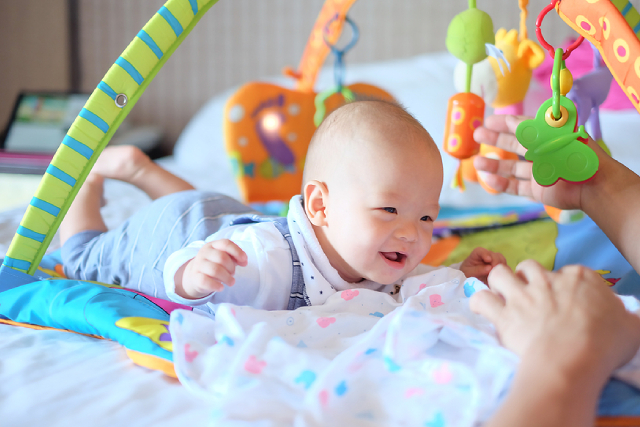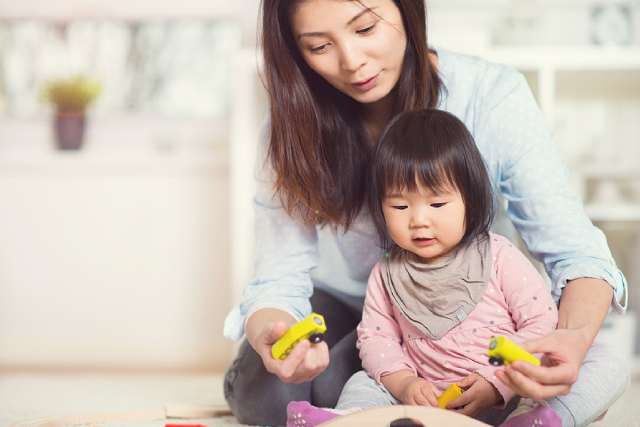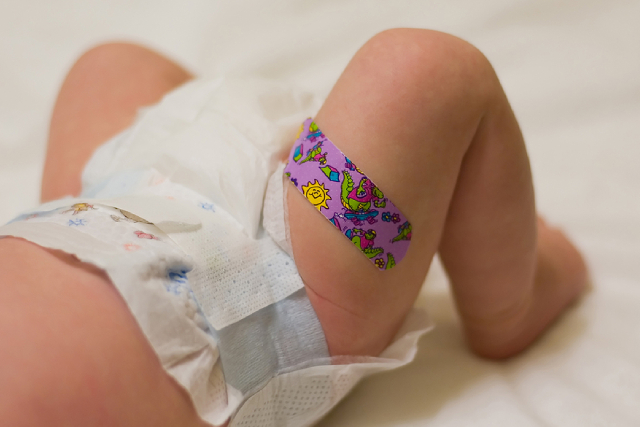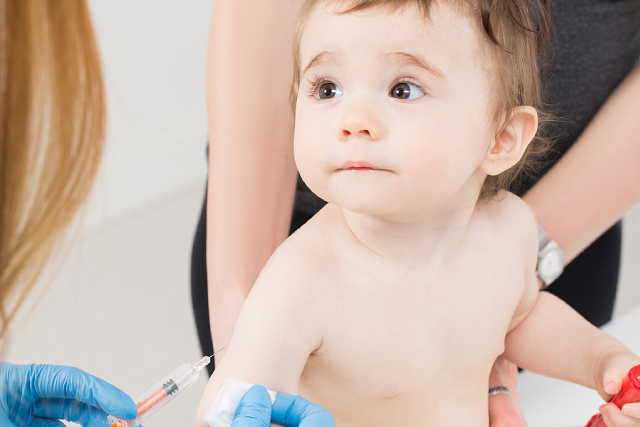
blog
Developmental Activities To Help Babies Reach Milestones

Watching your child grow and develop is one of the most rewarding experiences as a parent. Each smile, step, and word represents a significant milestone in their journey towards independence. Understanding the stages of your child's growth and engaging in activities that promote their development can help ensure they reach these important milestones on time. It's essential to provide the right stimulation and environment to foster their physical, cognitive, and emotional growth.
It's natural to wonder if your child is growing well and reaching their developmental milestones. Every baby develops at their own pace, and there is a broad range of what is considered ‘normal’. However, keeping track of these milestones can provide reassurance and help you identify any areas where your child might need additional support. Regular check-ups and consultations with healthcare professionals can offer valuable insights into your child's development, ensuring they are on the right track.
In this article, we explore different types of development activities that can further support your baby's growth and milestone achievements – physical, cognitive, and emotional.
Physical development activities
Physical development is crucial in the early years, as it lays the foundation for future motor skills and overall health. Here are some activities to support your baby's physical growth:
1. Tummy time: This activity strengthens your baby's neck, shoulder, and arm muscles. Start with a few minutes a day and gradually increase the duration as your baby gets stronger. Place toys within their reach to encourage movement.
2. Reaching and grasping: Provide toys that your baby can reach for, grasp, and explore with their hands. This helps develop their hand-eye coordination and fine motor skills.
3. Rolling over: Encourage your baby to roll over by placing toys just out of their reach. This activity strengthens their core muscles and improves their ability to move independently.
4. Sitting up: Support your baby in a sitting position and surround them with pillows for safety. Sitting up helps strengthen their back and abdominal muscles.
5. Crawling: Create a safe space for your baby to crawl and explore. Crawling improves coordination and builds strength in the arms, legs, and core.
Cognitive development activities
Cognitive development involves your baby's ability to think, learn, and solve problems. Engaging in activities that stimulate their brain can significantly enhance their cognitive skills:
1. Peek-a-boo: This simple game teaches your baby about object permanence – understanding that objects still exist even when they are out of sight.
2. Reading: Reading to your baby from an early age fosters language development and enhances their listening skills. Choose colourful books with large pictures and simple, repetitive text.
3. Sorting and stacking: Provide toys that your baby can sort by colour, shape, or size. Stacking blocks helps them learn about balance and spatial relationships.
4. Exploration: Allow your baby to explore different textures and objects. Sensory play, such as playing with water, sand, or soft toys, stimulates their senses and encourages curiosity.
5. Singing and rhyming: Singing songs and nursery rhymes introduces your baby to the rhythm and patterns of language. It also helps develop their memory and listening skills.
Emotional and social development activities
Emotional and social development is about building relationships and understanding emotions. Here are some activities to support your baby's emotional and social growth:
1. Cuddling and bonding: Physical affection, such as cuddling and holding your baby, creates a secure attachment and fosters emotional well-being.
2. Face-to-face interaction: Spend time making eye contact and smiling at your baby. This helps them recognise facial expressions and develop social skills.
3. Playdates: Arrange playdates with other babies to expose your child to social interactions. Observing and playing with peers teaches them about sharing and cooperation.
4. Mirror play: Use a mirror to help your baby recognise themselves and explore different facial expressions. This activity promotes self-awareness and emotional understanding.
5. Role-playing: Engage in pretend play with your baby using dolls or stuffed animals. This activity encourages empathy and understanding of social roles.
Monitoring development with a child developmental assessment
It's important to regularly monitor your baby's development to ensure they are reaching their milestones. A child developmental assessment in Singapore can provide a comprehensive evaluation of your baby's growth across various domains. This assessment helps identify any potential delays early on, allowing for timely intervention and support. Healthcare professionals can offer personalised guidance and recommend activities tailored to your baby's unique needs.
Conclusion
Supporting your baby's development through targeted activities can make a significant difference in their growth and milestone achievements. By engaging in physical, cognitive, and emotional development activities, you are laying a strong foundation for their future success. Remember, every child develops at their own pace, so it's essential to provide a nurturing and stimulating environment for them to thrive.
At Babysteps Medical, we are dedicated to supporting your child's health and development every step of the way. Our services include comprehensive child developmental assessments, house call doctor services, specialised care for speech and language development, and newborn jaundice treatment. If you have any concerns about your child's development or need a house call doctor in Singapore, our experienced team is here to help. Contact us today to learn more about our services and how we can assist you in ensuring your child reaches their full potential.



